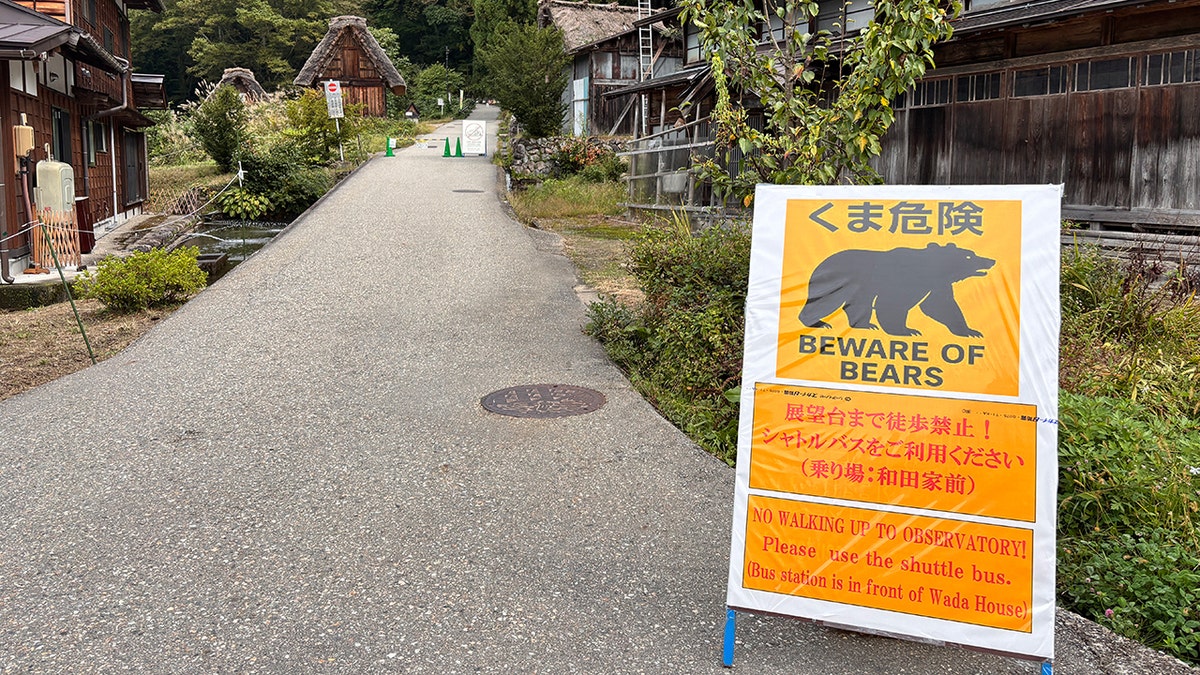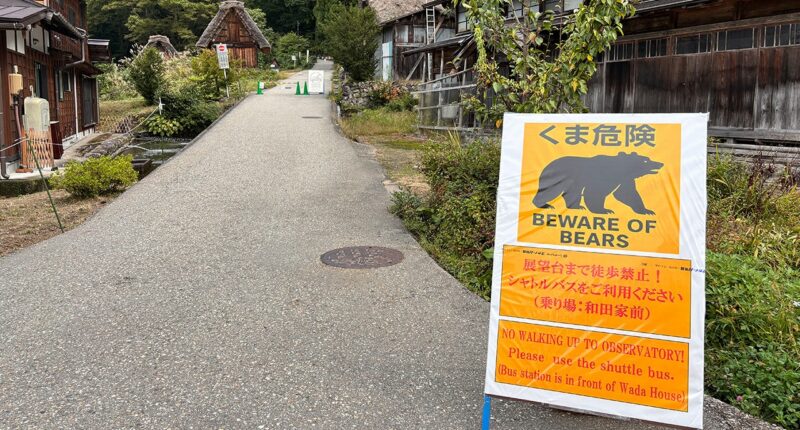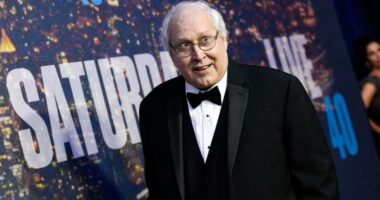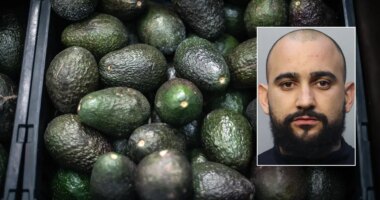Share this @internewscast.com
The U.S. State Department has issued a cautionary notice to American citizens residing in or visiting Japan, advising them to stay vigilant due to a rising number of bear encounters. This alert follows a troubling series of incidents where 13 people have lost their lives to bear attacks since April.
In response to these occurrences, Japanese authorities have temporarily closed Maruyama Park in Sapporo after a bear was spotted in the area. The park, located near the U.S. Consulate General, will remain off-limits for two weeks, according to a State Department advisory released on Wednesday.
“There has been an increase in bear sightings and attacks across parts of Japan, particularly in regions that border or are close to urban areas,” the advisory notes. “Though the Consulate itself is outside the park’s boundaries, we urge all visitors there for routine or other services to exercise caution and maintain awareness of their surroundings.”

A warning sign was placed at the entrance to a closed walking trail leading to the observatory in the Shirakawago district, a UNESCO World Heritage site, on October 7, 2025, in Hida, Gifu Prefecture. This comes amidst the State Department’s alert directed at Americans concerning bear sightings in Japan. (VCG/VCG via Getty Images)
Thirteen fatalities attributed to bear attacks have been reported since April, according to AFP. In light of the most recent incident, Japan has dispatched military personnel to the Akita region in the north on November 8 to manage the situation.
In response, Japan deployed troops to the northern Akita region Nov. 8 after the most recent attack there.

A hiker was found dead in August in Japan after a brown bear attacked and dragged him into the bushes, authorities said. (iStock)
The troops didn’t carry firearms and did not harm any bears, AFP reported.
Instead, they carried bear sprays, sticks, shields, goggles, bullet-proof jackets and net launchers in an attempt to restore a sense of safety in the area.
A poor acorn harvest resulted in a boom to Japan’s bear population as they moved closer to residential areas to seek out food.

A member of the Japan Self-Defense Forces stands next to military vehicles during a practice setting up a bear trap in Kazuno, Akita Prefecture, Japan, Nov. 5, 2025. (Tom Bateman/Reuters)
Residential areas in Hokkaido and Akita have also reported bear sightings, which could lead to more park closures, the alert said.
The U.S. Embassy in Tokyo urged Americans to avoid areas where bears have been seen and to report sightings to authorities.
















